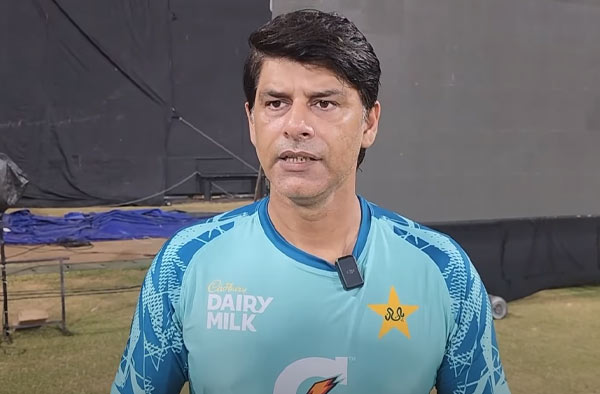The ninth edition of the Women’s Asia Cup, held in Sri Lanka from July 19 to July 28, 2024, saw eight teams competing in a T20 format right before the T20 World Cup. Pakistan, placed in Group A alongside Nepal, the United Arab Emirates (UAE), and India, faced a challenging start with a 7-wicket loss to India. However, they rebounded strongly by defeating Nepal by 9 wickets and the UAE by 10 wickets, ensuring their place in the semi-final. Throughout the group stage, Gull Feroza emerged as Pakistan’s highest run-scorer with 124 runs, while Sadia Iqbal was the leading wicket-taker with 4 dismissals.

In the semi-final, Pakistan’s journey ended with a close 3-wicket defeat off the penultimate ball to the hosts Sri Lanka. Despite a commendable effort throughout the tournament, including their strong performances in the group stage, the team fell short of advancing to the final.
Following Pakistan’s performance in the Women’s Asia Cup 2024, head coach Muhammad Wasim shared his insights on the team’s journey throughout the tournament. His reflections paint a picture of both pride and areas for improvement as the team gears up for future challenges.
In his analysis, Wasim highlighted the team’s resilience and competitive spirit. “We played some commendable cricket, taking matches right down to the last ball,” he remarked. “There were numerous positives to take from our campaign.”
Despite a rocky start, where the team struggled in their opening match against India, Pakistan’s performance progressively improved. “After our initial setback, we bounced back with solid performances, winning the next two matches and reaching the semi-final. We demonstrated good cricket overall, but crucial moments such as dropped catches and loose deliveries proved costly,” Wasim explained.
The head coach praised the efforts of the batters, noting, “We empowered the batting side, giving them the freedom to express themselves. Our openers, in particular, stepped up and made significant contributions.” He also commended the spinners, who were instrumental throughout the tournament. “While the spinners performed admirably, they faced pressure during the semi-final. Despite this, Sadia was outstanding and was our bowler of the tournament.”
As the team reflects on their journey, Wasim acknowledged both the positives and the disappointments. “There are many positives to take from this tournament. However, not achieving the final was disappointing. We need to evaluate how we can improve for the next time,” he said. The focus will be on learning to perform under pressure and refining their strategies for the upcoming World Cup.
With the World Cup approaching and set to be held in Bangladesh, Wasim expressed optimism about the conditions favoring their spinners. “The conditions in Bangladesh will suit our spinners, and we need to work on enhancing our pace bowling department as well,” he noted.
The head coach remains hopeful about the team’s prospects. “We’ve played competitive cricket till the very end. Other teams have seen us in action and might view us as a formidable opponent. We have the potential to beat anyone.”
In conclusion, Wasim’s reflections highlight a blend of achievements and areas for growth. As Pakistan women’s cricket team prepares for the World Cup, the lessons learned from the Asia Cup will be crucial in shaping their future successes.